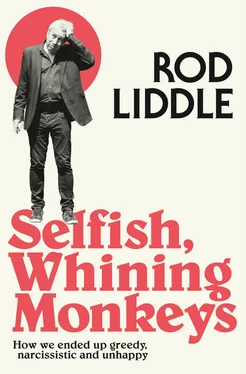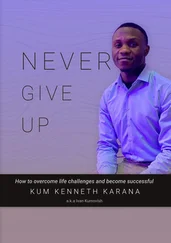Then there was her mild animus against Jews, which I found utterly inexplicable even when I was very young – but which presumably had its fascistic roots in her East End of London upbringing. I remember well the Yom Kippur War – with my dad and me cheering on the Israelis, whom we admired for their appalling travails, their Western-ness and competence, and my mother howling support for the valiant Arabs, who were nonetheless still wogs, of course, but sort of honest and steadfast wogs, unlike the Jews. A bloody rare thing, honest wogs. That’s how we viewed these new TV wars between competing angry wogs, back then: as a sort of Champions League semi-final, take your sides, may the best man win, let’s hope it goes to penalties.
My dad, meanwhile, had a vague fondness for ‘Indians’, a contempt for Americans, a visceral loathing of the French except for General de Gaulle, for whom he expressed qualified admiration, and a sullen disdain for the rest of the world’s people, ranging west from Monmouth to Copenhagen. I mean, really, west to east – Monmouth to Copenhagen, via Americas North and South, Asia and Africa. Everywhere, that is, except for New Zealand and Australia, and also – because of that nice Christmas tree they give us every year – Norway. It wasn’t racial hatred at all, mind; just disdain and utter contempt.
And yet once, in the year before he died, my dad told me he’d always wanted to visit Valparaiso. As a kid he’d seen it on a map, and heard it spoken about, and it somehow conjured a beguiling exoticism of a place far away where exciting and strange things might happen. Like me, he had a thing about maps, wanting to know where everything was, how all these awful, contemptible places full of dubious people connected up. And so somehow, staring at a map years before, he had got it into his head that exciting things might happen in the Chilean seaport of Valparaiso. It had never occurred to me that he wanted exciting things to happen. He had always rather intimated that he preferred that they wouldn’t.
But, all things considered, my parents held a somewhat narrow and rancid view of the world that seems determined to exist beyond our shores, one undoubtedly occasioned by the Second World War – a struggle in which we were opposed by bestial enemies and hindered by cowardly and devious allies, but nonetheless prevailed, as you might expect. And also, one supposes, occasioned by the vestigial tail of our old empire left dangling inside their brains. Whatever the causes, this is all I have on them, my parents – this lofty disdain for billions of people, a disdain shared close to universally among people of their social class and age. Not a raging racism by any means – until the 1980s, my mum and dad voted Labour, and would rather have voted Communist than NF – just a meme rooted somewhere deep inside, and which was usually not articulated at all, just sort of there, and ever-present.
But this is all I have on them; about everything else, they were right. And I, and my generation, seem by contrast feckless and irresponsible, endlessly selfish, whining, avaricious, self-deluding, self-obsessed, spoiled and corrupt and ill. We are the generation that has spent the small but hard-earned inheritance we got from our hard-working parents (mine went on that most irresponsible and selfish of all of our new and expensive freedoms, divorce lawyers), and are now busy spending the money we should be leaving to our kids. And while our own children are temporarily materially indulged, and deprived of that most crucial human right, boredom, they are otherwise neglected, too often considered an encumbrance. My generation is the one which will not wait for anything, because it feels it has the right to have everything now – and this is true not simply in material terms, although that’s bad enough.
Again, this isn’t nostalgia, a demand for a return to the values of 1964. A friend of mine up in Darlington died of polio in that year; another friend, back down in South London, had rickets. I don’t see much benefit in bringing back polio and rickets, still less smallpox, which I remember being terribly scared of back then. *And the various processes which have inculcated in my generation its sense of entitlement and adherence to a sort of endless and witless moral relativism have not all been for the bad, either. It is hard to argue against longer life expectancy, greater affluence, safer workplaces, the freedom to escape from a hopeless marriage, the rights of women to be treated equally, and so on. But a certain moral code has been lost along the way, which has contributed lately to our country becoming close to bankrupt, a nation of broken families clamouring about their entitlements siring ill-educated and undisciplined kids unfamiliar with the concept of right and wrong, where there is an ever-diminishing sense of community and belonging, a perpetual transience, if you fancy a cheap oxymoron.
This kind of complaint is often seen as one of those rather tired why-oh-why right-wing arguments, invariably followed by a finger pointed at those jabbering long-haired liberal bores of the 1960s, with their Marcusian and Gramscian idiocies, who rewrote our education system, demanded the new divorce laws, took over the criminal justice system and so on. And sure enough, there will be some of that in what follows – but it is not even half of the story. At least as many of the most repellent aspects of my generation, of where and how we have become so palpably wayward, so fucking full of ourselves, are the consequence, directly or otherwise, of that singularly grim and vindictive Conservative government of the 1980s. And when those two philosophies come together – they are not so distant as you might think, both concerning themselves, primarily, with self-empowerment – the result is especially toxic; a determination to do away with everything – society, authority – but ourselves.
And then again, there’s plenty more that is, on the surface at least, politically neutral. This is why it is so hard to deal with our malaise; because it is the product, in part, of two schools of political thinking which are usually regarded as in opposition to one another – and also of stuff that fits into neither political camp very comfortably. It is a waywardness, then, which muddies all the established paradigms. And, furthermore, all of it contained within a paradox: peace, freedom, affluence, comfort and security are all, you would argue, agreeable entities. But they have caused us a lot of problems, and – as we shall see – they have not made us terribly happy. Peace has made us complacent, freedom has made us irresponsible, affluence has made us acquisitive, comfort has made us neglectful of others, and security has made us – oddly enough – tremblingly insecure. I suppose you could advance the argument that our selfishness has been imposed upon us, much as obesity has been imposed upon the hulking fat tattooed chavmonkey standing in the queue at Burger King for his two supersize cardiocheeseburgers with bacon, double fries and vat of Coke. That would be a very now argument, very 2014; that none of it is our own fault, but it has happened ineluctably, and it could not be otherwise, and perhaps the government should give us some help as a consequence, maybe send us on a course, sort out some counsellors or give us some more money to deal with it. Well, fuck that. We are not totally powerless, not entirely at the mercy of external forces. Our existence precedes our essence, and not the other way around, yes? It is pointless and, I think, cowardly to try to exculpate ourselves on the grounds that we are passive recipients of cultural change which has been imposed upon us, without our connivance. The philosophies we cheerfully embraced came from somewhere; they did not manifest themselves, unbidden, out of the ether. But one way or another, there is something lacking in us; something which previous generations possessed.
Читать дальше












